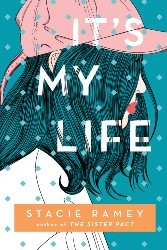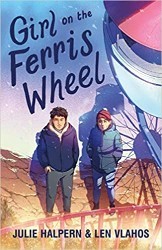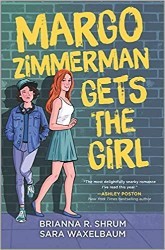
Books have always been important to me. As a kid, I was sick all the time. What to do when waiting for the next doctor? Read, of course. I taught myself to read at a very early age, despite having dyslexia, and I read everything I could get my hands on — from funny, to sincere, to terrifying true stories.
It’s been famously said that books should be both windows and doors. It should be no different for Jewish kids, but growing up there weren’t many books about kids like me; kids who were Jewish and lived in a largely non-Jewish area; kids who felt very different when they missed classes for the Jewish holidays or for a bat mitzvah; kids who questioned if they were Jewish enough; kids with invisible disabilities. What I wouldn’t have given to have a collection of books that reflected my own experiences, or were aspirational in terms of my life and the way I identify.
Luckily this is no longer true. Consider these recently published young adult books written about Jewish characters with disabilities, and those struggling with mental health. With any curated list there are inevitably great books that are left off. To those books and their authors, I apologize. To readers, I offer this as a jumping-off point.
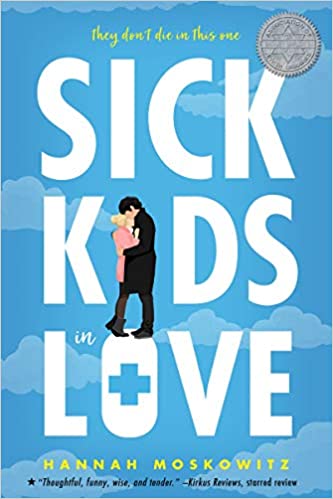
Sick Kids in Love by Hannah Moskowitz is an authentic and moving look at two kids who are struggling with chronic illness and chronic pain. The main character, Isabel, has rheumatoid arthritis, a mother who left her, and an iron clad no dating rule. She tries to live life without letting her college RA get in the way. She volunteers at the hospital once a week, she writes a column in the school’s newspaper, she hangs out with her friends who don’t have disabilities — keeping up with all of their antics regardless of how much it costs her physically. She doesn’t let herself slow down. Not until she meets Sasha, a boy who is also sick. He has gaucher disease so he understands her world of chronic pain. The romance is beautifully written. The messages are clear — self-care is just as important as not giving up on yourself. This book will change your outlook and understanding of those with invisible disabilities if you do not live with one yourself. If you do, I hope you find yourself represented in these beautiful pages.
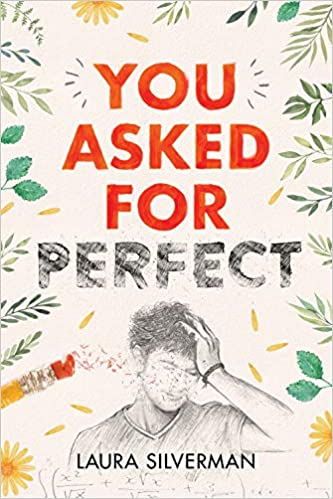
You asked for Perfect by Laura Silverman is about Ariel, a perfectionist living in a high performing family. He is expected to be valedictorian, is the first chair for violin in the school orchestra, volunteers at a local pet shelter, and has been accepted to Harvard. But it all starts slipping away when he fails a Calculus quiz. Struggling with his need to be perfect, Ariel pushes himself even harder. He gets a tutor — Amir, a boy in his Calculus class — who also becomes the subject of Ariel’s crush. This isn’t the time for Ariel to add a relationship to his already overloaded schedule, but how can he resist? This book is a realistic look into the pressure perfectionists put on themselves. It aptly demonstrates that it can cause severe anxiety, illness, and lead to other issues. The family and friends are portrayed in real and charming ways, and there is good Jewish representation throughout. We put too much pressure on high achieving kids and this is a truthful look at how dangerous that can be.
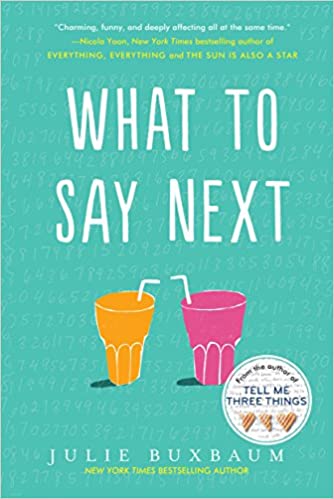
What to Say Next by Julie Buxbaum is about David, a boy who is on the autism spectrum. On the advice of his highly popular and adoring older sister, Lauren, who is now off to college, he starts a notebook where he keeps rules to live by; rules about his classmates; who to trust, who not to trust; notes about the students around him — the ones who do not include him — especially at lunch where he sits alone every day. Until one day Kit Lowell sits next to him. She is seeking refuge from her friends who don’t understand how expansive her grief is after her father’s death in a tragic car accident. David is usually quiet, so his lunch table feels like a safe place for her to land. As the days go by, her need for answers as to why her father died leads her to ask David for help. For his part, he’s thrilled to have Kit join him, no matter the reason. Plus he loves puzzles. As they try to figure out the exact cause of Kit’s father’s accident, he starts to count on their interactions; she starts to realize how interesting he is and how much his honesty means to her. This slow burn romance is worth the wait.
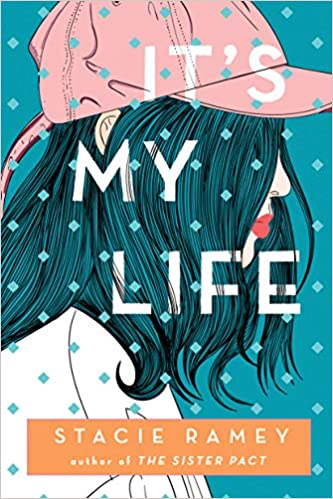
My own book, It’s My Life, is the story of a Jewish girl with cerebral palsy. Jenna Cohen has always accepted her CP without question. She was Daddy’s little warrior, doing her therapies, working her hardest, trying her best. That changes when she discovers that her condition was caused by medical malfeasance. How could her parents have kept this from her? Angry and hurt, she withdraws from the most challenging things in her life — ditches her AP classes for general education ones. She misses her friends and also the content, but not enough to return to them. Why not give herself a break, after years of working hard? Even if it’s a knee jerk reaction.
Enter Julian, her crush since Kindergarten, who moves back to town. He’s a hockey player — beautiful and fun, but struggling academically. Julian has dyslexia and Jenna feels like she can help him, especially since they are now in the same English class. She writes to him anonymously, channeling her fantasy persona — the version of herself that she could have been had she not had this disability. The more she texts Julian, the more she feels like she’s falling for him, but she’s plagued by the question of will he still want her when he realizes who she is? This book, at its core, is about how helping others sometimes reminds you to help yourself.
Stacie Ramey learned to read at a very early age to escape the endless tormenting from her older siblings. She attended the University of Florida where she majored in communication sciences and Penn State where she received a Master of Science degree in Speech Pathology. When she’s not writing, she engages in Netflix wars with her children or beats her husband in Scrabble. She lives in Wellington, Florida with her husband, three children, and two rescue dogs.
